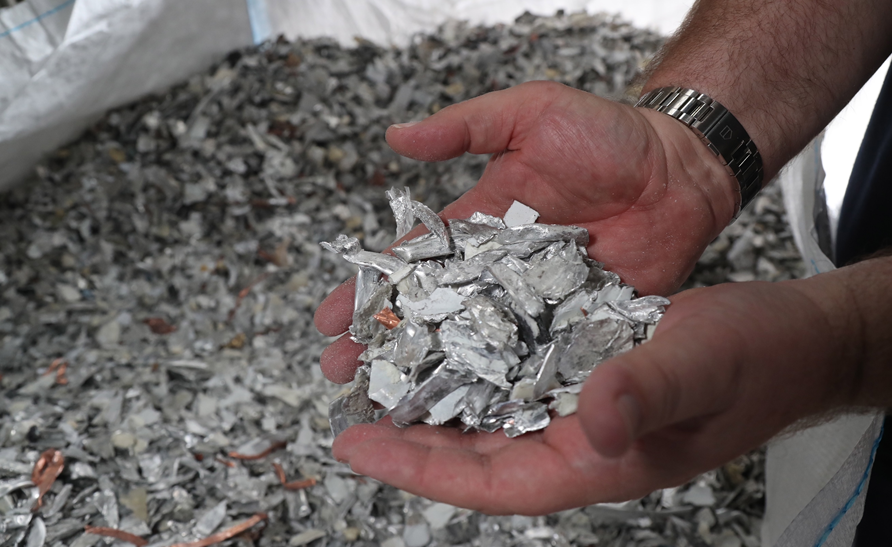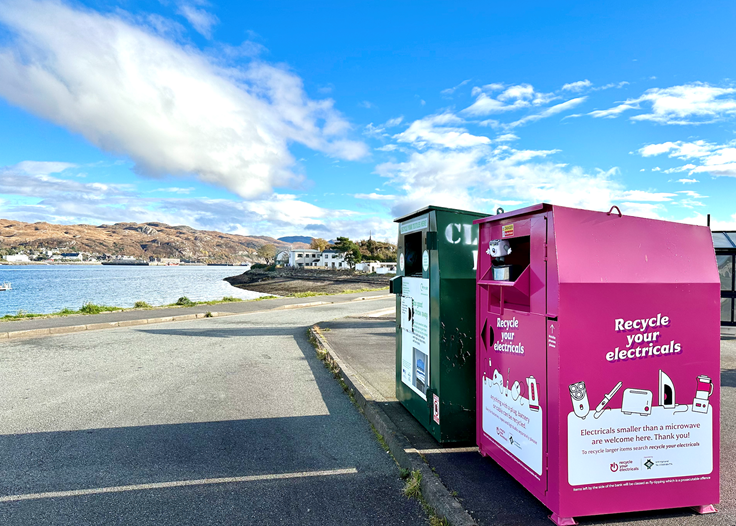Producers of WEEE should be incentivised to design products that are easy to reuse or recycle, according to a report examining individual producer responsibility (IPR) in the UK.
The report was produced by a Working Group set up by the Department for Business, Innovation and Skills (BIS) now defunct WEEE Advisory Body (WAB) in 2009 to assess how the UKs WEEE system could incorporate greater individual responsibility for manufacturers to recycle WEEE.

The report was commissioned following concerns that the UK, along with a number of other EU Member States, had failed to correctly implement Article 8.2 of the WEEE directive, which states that producers are required to take financial responsibility for the products that have been placed onto the market since 2005 (see letsrecycle.com story).
It is argued that an IPR system – where producers are responsible for financing or treating their own products when they become waste – would encourage producers to design products that are easier to recycle.
Benefit
The current system in the UK sees producers collectively responsible for the cost of collecting and treating WEEE that is collected for recycling, with each producer required to finance the treatment of WEEE equivalent to their share of the market. Critics say that by using this system, manufacturers are unlikely to see the financial benefit of designing products that are easy to recycle.
To address this, the working group, which is chaired by LWARB board member Peter and includes Professor Margaret Bates from the University of Northampton, Gary Griffiths from WEEE recycler RDC, Adrian Hawkes from producer compliance scheme Valpak, as well as representatives from the Environment Agency and WRAP, has recommended three options for BIS to consider to achieve greater producer responsibility.
The preferred option put forward in the report is to implement a design for recycling and reuse (DfRR) weighting mechanism, which would see a producers obligated WEEE collection tonnage increased or decreased based on the cost of treatment and characteristics of products that it places on the market.
Design
The report states: In a typical market share system there are few DfRR incentives. Producers currently active on the market pay for mixed brand WEEE arising using a standard cost per tonne for all products within the same product category. The only potential incentive is to design more lightweight products as the market share ratio is usually calculated based on weight of products sold.
“Its a comprehensive study that for the first time considers in depth the challenges of introducing a system of IPR in the UK along with recommendations of how that might be achieved.”
BIS spokesman
Modified market share systems can introduce additional DfRR incentives. A key example of this is the French bonus/malus system whereby mandated surcharges/reductions are applied to the producers costs by their PCS based on the specified DfRR features of the products being put on the market.
It also favours a return share system, similar to one currently in use in several US states, giving producers the option to operate their own direct take back activities for household WEEE, and put in place safeguards to ensure that the proper collection and recycling takes place.
The final suggestion offered by the working group was for the front end payment for WEEE arising that would see producers pay according to the current costs of collecting treating and recycling the sub-category of EEE being put onto the market.
BIS
A BIS spokesman said: BIS welcomes the report of the WEEE Working Group on IPR. Its a comprehensive study that for the first time considers in depth the challenges of introducing a system of IPR in the UK along with recommendations of how that might be achieved.
Its content and recommendations will form part of our wider evidence base that will lead to development of proposals for revised WEEE regulations effective from 2014.
Related Links
BIS is set to consult on changes to the WEEE system in early 2013, having been set a February 14 2014 deadline to implement new legislation to bring the UK in line with the recast of WEEE Directive, which came into force yesterday (see letsrecycle.com story). The findings of the report are likely to feed into BIS proposed changes to the WEEE sector.











Subscribe for free